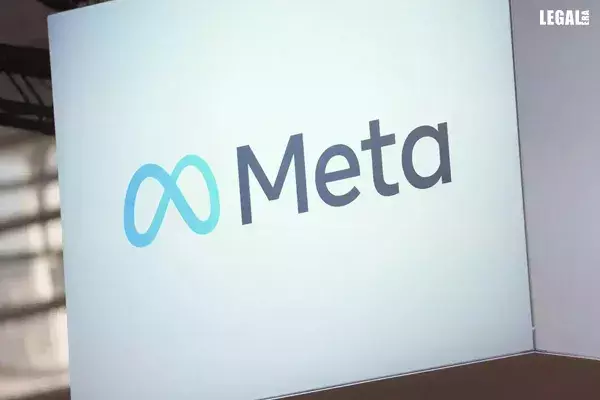NCLAT Admits Meta And WhatsApp Pleas Against CCI's Penalty Over Abuse Of Dominance
The social media platforms had challenged the order;

NCLAT Admits Meta And WhatsApp Pleas Against CCI's Penalty Over Abuse Of Dominance
The social media platforms had challenged the order
The National Company Law Appellate Tribunal (NCLAT) has admitted the petitions filed by Meta Platforms and WhatsApp against an order passed by the Competition Commission of India (CCI).
In November last, the fair-trade regulator had imposed Rs.213.14 crore on social media major Meta for abuse of market dominance. It was accused of unfair trade practices on the 2021 WhatsApp privacy policy update.
Meta and WhatsApp had challenged the order before the NCLAT.
The two-member bench of the CCI comprising Justice Ashok Bhushan (Chairperson) held, "We find that the submission raised by the parties needs consideration. We admit both the appeals.”
However, the court stated that the interim relief to stay the CCI order would be decided next week.
When the counsels representing WhatsApp and Meta requested the NCLAT to stay the CCI order, the counsel for the CCI opposed it.
Appearing for Meta and WhatsApp, senior advocates Kapil Sibal and Mukul Rohatgi, respectively, contended that the CCI overstepped its jurisdiction by ruling on WhatsApp's privacy policy as the matter was sub-judice before a Constitution Bench of the Supreme Court.
They stated, "The CCI has gone into the entity's privacy policy. It is before five judges of the Supreme Court. It has no jurisdiction to deal with it.” There was no such complaint and the CCI drew an "erroneous conclusion" on dominance.
Sibal maintained, "Without an effect analysis, you cannot come to the conclusion.”
He added that the Commission did not examine the shared data. It barred WhatsApp from sharing data collected on its platform with other Meta companies or Meta products for advertising for five years.
He alleged, "They are trying to destroy the business model. No app can survive without monetization.”
Similar platforms such as Telegram and Signal have their own models of monetization. Search apps also monetize in their own ways.
Sibal sought an immediate stay on the CCI order, to be implemented by 19 February.
He stressed, "Let the Supreme Court decide on the privacy policy and let the statutory rules come, then you (NCALT) can take up the matter and decide. Moreover, provide a balance of convenience in our favor, as we have been operating this for years."
While Rohatgi, representing WhatsApp, said its usage was free and people sent messages, including videos, from 'Good Morning to Good Night', for which no one has to pay.
He questioned, "How can anybody survive on a free model? This is not a sinister sharing. This is just a business model. Facebook and WhatsApp today are under one ownership. They started in 2016. This is a benign kind of sharing; not sinister.”
However, appearing for the CCI, advocate Samar Bansal opposed the arguments. He submitted that there was no overlap between the case in the top court and the investigation conducted by the CCI.
Responding to a query from the bench, he said privacy law tackles user data, whereas competition law related to business data.
Bansal explained that unlike in Europe, Indian users did not have the choice to opt-out. In the European Union region, privacy policy of WhatsApp provides users the option to right to access, rectify, port and erase information. It provides the right to restrict and object to certain processing of user information.
In its 156-page November order, the CCI directed Meta to cease and desist from anti-competitive practices. They were ordered to implement certain behavioral remedies within a defined timeline to address the issues.
The regulator said that sharing user data collected for purposes other than providing WhatsApp services shall not be made a condition for users to access WhatsApp services in India.

